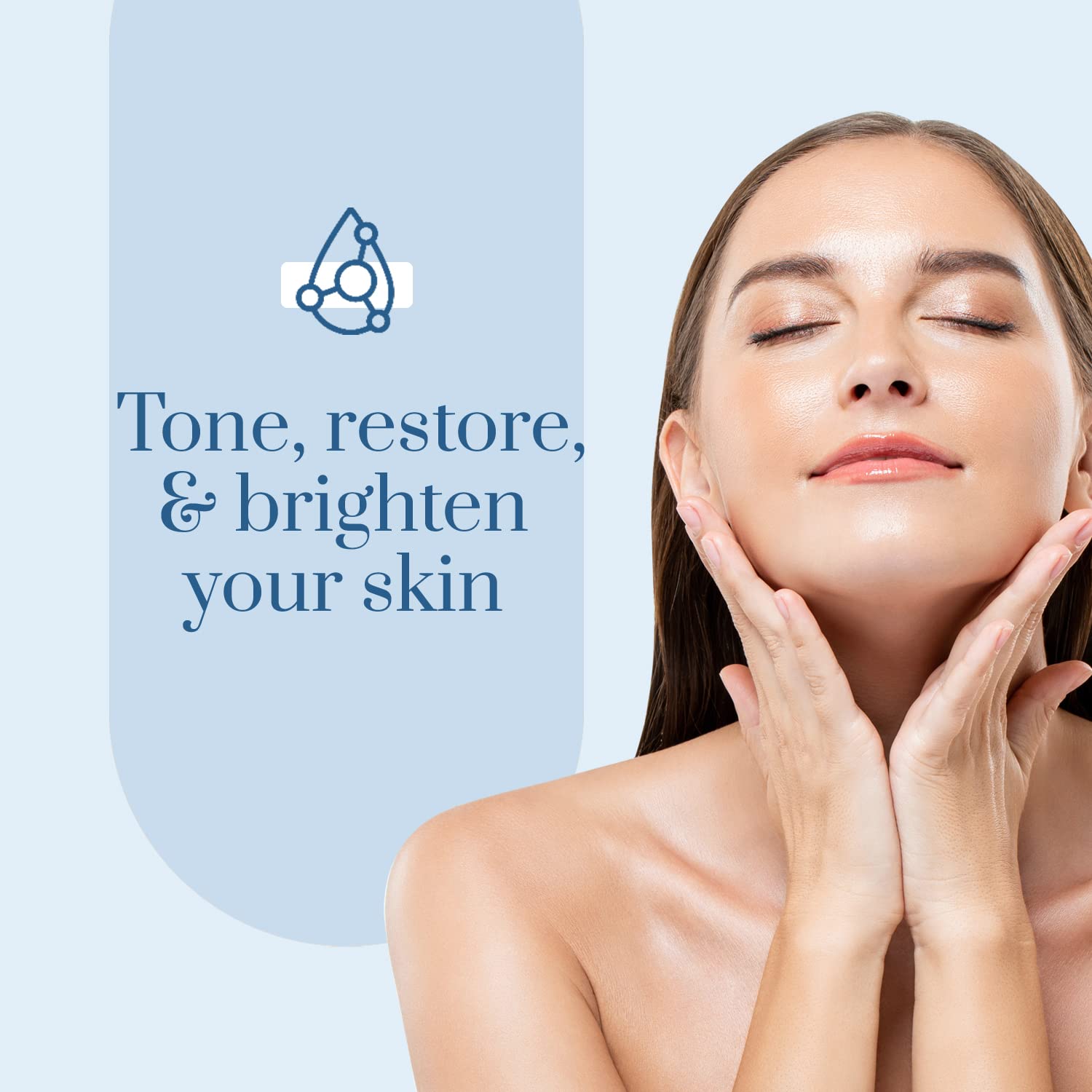
The Essential Guide to Night Cream for Face
Understanding the Importance of Night Creams
Night cream for face play a crucial role in skincare routines, offering unique benefits that day creams cannot provide. These specialized formulations work in harmony with the skin’s natural regeneration process during sleep. At night, the skin enters a state of repair and renewal, making it the perfect time to apply targeted treatments. Night creams typically contain higher concentrations of active ingredients compared to their daytime counterparts. This increased potency allows for deeper penetration and more effective results.
Additionally, night cream for face often have richer textures that provide intense hydration throughout the night. The absence of sun exposure during sleep hours means night creams can include ingredients that may cause photosensitivity. This allows for the use of powerful anti-aging compounds like retinol without the risk of sun damage. Night creams also help to counteract the effects of daily environmental stressors, such as pollution and free radicals.
By incorporating a night cream into a skincare routine, individuals can wake up to smoother, more radiant skin. The cumulative effects of consistent night cream use can lead to significant improvements in skin texture, tone, and overall health. As a result, night creams have become an essential step in many people’s evening skincare rituals.

Key Ingredients in Effective Night Creams
The efficacy of night cream for face largely depends on their ingredient composition. Retinoids, derivatives of vitamin A, stand out as powerful anti-aging components. These compounds promote cell turnover and collagen production, reducing the appearance of fine lines and wrinkles. Hyaluronic acid, another common ingredient, attracts and retains moisture, plumping the skin and improving its elasticity.
Peptides, short chains of amino acids, stimulate collagen synthesis and help firm the skin. Antioxidants like vitamin C and E neutralize free radicals, protecting the skin from oxidative stress. Niacinamide, a form of vitamin B3, helps to improve skin texture and reduce the appearance of pores. Many night creams also include natural oils such as jojoba, argan, or rosehip, which provide nourishment and support the skin’s barrier function.
Alpha-hydroxy acids (AHAs) and beta-hydroxy acids (BHAs) gently exfoliate the skin, promoting cell renewal and improving skin texture. Ceramides, naturally occurring lipids in the skin, help to strengthen the skin’s protective barrier and retain moisture. Some night creams incorporate plant extracts like green tea or chamomile for their soothing and anti-inflammatory properties. By combining these potent ingredients, night creams address multiple skin concerns simultaneously, maximizing the skin’s overnight recovery process.
Choosing the Right Night Cream for Your Skin Type
Selecting an appropriate night cream for face requires consideration of individual skin types and concerns. For those with dry skin, rich, emollient creams containing ingredients like shea butter or ceramides provide intense hydration. Oily skin types benefit from lightweight, non-comedogenic formulas that balance moisture without clogging pores.
Combination skin calls for products that address both dry and oily areas, often achieved through gel-cream textures. Sensitive skin requires gentle, fragrance-free options with soothing ingredients like aloe vera or chamomile. Individuals with mature skin should look for night creams packed with anti-aging ingredients such as retinol, peptides, and antioxidants. Those prone to acne may benefit from night creams containing salicylic acid or tea tree oil to combat breakouts.
For hyperpigmentation concerns, seek out formulas with brightening agents like kojic acid or vitamin C. People with rosacea or redness-prone skin should opt for calming night creams with ingredients like niacinamide or centella asiatica. It’s essential to consider any specific skin concerns, such as fine lines, uneven texture, or loss of firmness, when choosing a night cream. By matching the night cream to the skin’s unique needs, individuals can maximize the benefits of their nighttime skincare routine.

Application Techniques for Optimal Results
Proper application of night cream for face ensures maximum efficacy and absorption. Begin by thoroughly cleansing the face to remove all traces of makeup, dirt, and oil. Gently pat the skin dry with a clean towel, leaving it slightly damp to enhance product absorption. Apply any serums or treatments before the night cream, allowing each layer to absorb for a few minutes. When it’s time for the night cream, start with a small amount, usually about the size of a pea.
Warm the product between clean fingertips to help it spread more easily. Apply the cream using gentle, upward motions, avoiding tugging or pulling on the skin. Pay special attention to areas prone to dryness or fine lines, such as around the eyes and mouth. Extend the application to the neck and décolletage, often overlooked areas that benefit from nighttime care. Gently massage the cream into the skin using circular motions, promoting blood circulation and product absorption.
Allow the night cream to fully absorb before lying down, which typically takes about 15 minutes. For those using multiple products, remember to layer from thinnest to thickest consistency. Consider using a facial massage tool or gua sha to enhance product penetration and stimulate lymphatic drainage. Consistency is key, so make night cream application a regular part of the evening routine for best results.
The Science Behind Nighttime Skin Renewal
Understanding the science of skin renewal during sleep highlights the importance of night creams. The skin’s circadian rhythm influences various processes, including cell regeneration and repair. During the night, blood flow to the skin increases, allowing for better nutrient delivery and toxin removal. The body’s production of growth hormone peaks during sleep, promoting collagen synthesis and cell turnover. Melatonin, often called the sleep hormone, also acts as a powerful antioxidant, protecting skin cells from damage.
The skin’s temperature rises slightly at night, potentially increasing the penetration of skincare products. Transepidermal water loss increases during sleep, making nighttime hydration crucial for maintaining skin moisture levels. The absence of UV exposure and environmental stressors allows the skin to focus on repair rather than defense. Studies have shown that cell division in the skin is up to three times faster at night compared to daytime.
The skin’s barrier function is also more permeable at night, allowing for better absorption of active ingredients. Night creams are formulated to work in synergy with these natural processes, providing the skin with necessary nutrients and support during its most receptive state. By aligning skincare with the body’s natural rhythms, night creams maximize the potential for skin rejuvenation and repair.

Common Myths and Misconceptions About Night Creams
Despite their popularity, night cream for face are subject to various myths and misconceptions. One common belief is that night creams are only necessary for mature skin, when in fact, they benefit all age groups. Another myth suggests that night creams must be heavy and greasy, which isn’t true for modern formulations. Some people believe that using a day cream at night is just as effective, overlooking the specialized ingredients in night creams.
The misconception that night creams can reverse aging overnight leads to unrealistic expectations and disappointment. Another false notion is that natural or organic night creams are always better, ignoring the benefits of scientifically-developed ingredients. Some incorrectly assume that night creams are unsuitable for oily or acne-prone skin, unaware of the lightweight options available. The belief that expensive night creams are always superior to affordable ones disregards the importance of ingredient quality over price.
Another myth suggests that night creams should be applied right before bed, when in fact, earlier application allows for better absorption. Some people mistakenly think that night creams replace the need for other nighttime skincare steps like cleansing or toning. The idea that night creams are only for facial use overlooks the benefits they can provide to the neck and décolletage. By dispelling these myths, individuals can make more informed decisions about incorporating night creams into their skincare routines.
Night Creams vs. Other Nighttime Skincare Products
While night creams are essential, they are part of a broader category of nighttime skincare products. Night serums, typically lighter and more concentrated, target specific skin concerns with potent active ingredients. Sleeping masks, also known as overnight masks, provide intense hydration and nourishment, often used a few times a week. Night oils offer rich moisture and can be particularly beneficial for dry or mature skin types.
Eye creams specifically address the delicate skin around the eyes, targeting concerns like fine lines and dark circles. Spot treatments focus on specific areas of concern, such as acne or hyperpigmentation. Retinol treatments, often used at night due to sun sensitivity, promote cell turnover and collagen production. Exfoliating treatments, including chemical peels and enzyme masks, are best used at night to avoid sun exposure on freshly exfoliated skin.
Hydrating essences and toners prepare the skin for better absorption of subsequent products. Ampoules, highly concentrated treatments, deliver powerful active ingredients for intensive skin therapy. While each of these products serves a unique purpose, night creams often act as a final step to seal in the benefits of other treatments while providing additional nourishment. The key lies in finding the right combination of products that work synergistically to address individual skin needs.

Seasonal Considerations for Night Cream Usage
The changing seasons necessitate adjustments to night cream usage for optimal skin health. In winter, when cold temperatures and indoor heating can lead to dryness, richer night creams provide much-needed hydration. Look for formulas containing ingredients like hyaluronic acid, ceramides, and fatty acids to combat winter skin woes. Spring calls for lighter textures as humidity increases, but night creams should still offer sufficient hydration to support skin renewal. Summer nights might require even lighter formulas, particularly for those with oily or combination skin. Consider gel-based night creams that provide hydration without heaviness during warmer months.
Fall is an ideal time to transition back to more nourishing formulas as the air becomes drier. Regardless of the season, night creams with antioxidants help protect the skin from environmental stressors year-round. In regions with significant seasonal changes, having two different night creams for summer and winter can be beneficial. Pay attention to how the skin responds to changing weather and adjust night cream usage accordingly. During transitional periods, gradually switch between seasonal formulas to avoid overwhelming the skin. Remember that factors like indoor climate control and travel can affect skin needs beyond outdoor weather conditions. By adapting night cream choices to seasonal skin requirements, individuals can maintain healthy, balanced skin throughout the year.
DIY Night Cream Recipes and Natural Alternatives
For those inclined towards natural skincare, DIY night cream recipes offer personalized alternatives to commercial products. A simple blend of coconut oil, shea butter, and vitamin E creates a nourishing base for dry skin. Adding a few drops of rosehip oil can boost anti-aging properties due to its high vitamin C content. For oily skin, a mixture of aloe vera gel, jojoba oil, and tea tree essential oil provides lightweight hydration with antibacterial benefits.
Honey, known for its humectant properties, can be combined with yogurt and oatmeal for a soothing, hydrating overnight mask. Avocado, rich in healthy fats and vitamins, makes an excellent base for a creamy night treatment when mashed and mixed with olive oil. Green tea, steeped and cooled, can be incorporated into night creams for its antioxidant properties. Cucumber juice mixed with almond oil offers a refreshing, hydrating option for sensitive skin. Mango butter, combined with cocoa butter and lavender essential oil, creates a luxurious, fragrant night cream.
For those concerned about hyperpigmentation, a mixture of plain yogurt and lemon juice can have brightening effects. While DIY options can be effective, it’s important to research ingredients thoroughly and perform patch tests to avoid adverse reactions. Natural alternatives provide a customizable approach to nighttime skincare, allowing for experimentation with different ingredients to find the perfect combination for individual skin needs.
The Future of Night Creams: Innovations and Trends
The night cream market continues to evolve, driven by scientific advancements and changing consumer preferences. Chronobiology-based formulations, designed to work in harmony with the skin’s circadian rhythms, represent a growing trend. Personalized night creams, tailored to individual DNA analysis and skin concerns, offer targeted solutions. Microbiome-friendly formulas support the skin’s natural bacterial balance, promoting overall skin health. Smart night creams, incorporating encapsulated ingredients that release throughout the night, provide sustained benefits.
Plant stem cell technology in night creams promises enhanced regenerative properties for aging skin. Adaptogens, herbs that help the body resist stressors, are finding their way into night cream formulations. Biodegradable and eco-friendly packaging addresses growing environmental concerns among consumers. Multifunctional night creams that combine the benefits of serums, oils, and masks simplify nighttime routines. Texture innovations, such as transforming gel-to-oil formulas, enhance the sensory experience of night cream application.
Integration of CBD and other cannabis-derived ingredients offers potential anti-inflammatory and calming effects. Blue light protection in night creams addresses concerns about screen time before bed affecting skin health. As research continues, expect to see more scientifically-advanced ingredients and delivery systems in future night cream formulations. These innovations aim to maximize the skin’s overnight renewal process, offering more effective and efficient nighttime skincare solutions.

